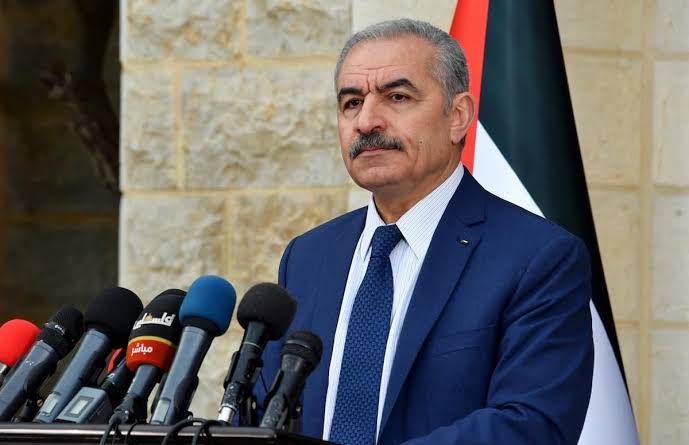Palestinian Prime Minister Mohammad Shtayyeh announced his resignation on Monday to pave the way for the establishment of a broad consensus among Palestinians regarding political arrangements post-Israel’s conflict with Hamas in Gaza.
This decision emerges amid mounting U.S. pressure on President Mahmoud Abbas to overhaul the Palestinian Authority, coinciding with intensified international endeavors to quell the Gaza hostilities and initiate the formulation of a political framework to govern the territory post-war.
Although Shtayyeh’s resignation requires approval from President Abbas, as he may be requested to continue as caretaker until a permanent successor is designated.
In a statement addressed to the cabinet, Shtayyeh, an academic economist who assumed office in 2019, underscored the necessity for the upcoming phase to acknowledge the evolving circumstances in Gaza, profoundly affected by nearly five months of intense conflict. He stressed the imperative for fresh governmental and political arrangements, aligning with the emerging reality in Gaza, ongoing national unity discussions, and the urgent imperative for an inter-Palestinian consensus.
Moreover, Shtayyeh emphasized the importance of extending the Authority’s jurisdiction across the entire Palestinian territory. Established three decades ago under the interim Oslo peace accords, the Palestinian Authority exercises limited governance in parts of the occupied West Bank but relinquished control in Gaza following a power struggle with Hamas in 2007.
Fatah, the dominant faction governing the PA, and Hamas have initiated efforts to establish a unity government, with plans to convene in Moscow on Wednesday. A senior Hamas official stressed that Shtayyeh’s resignation must be followed by a broader consensus on Palestinian governance arrangements for the ensuing phase.


